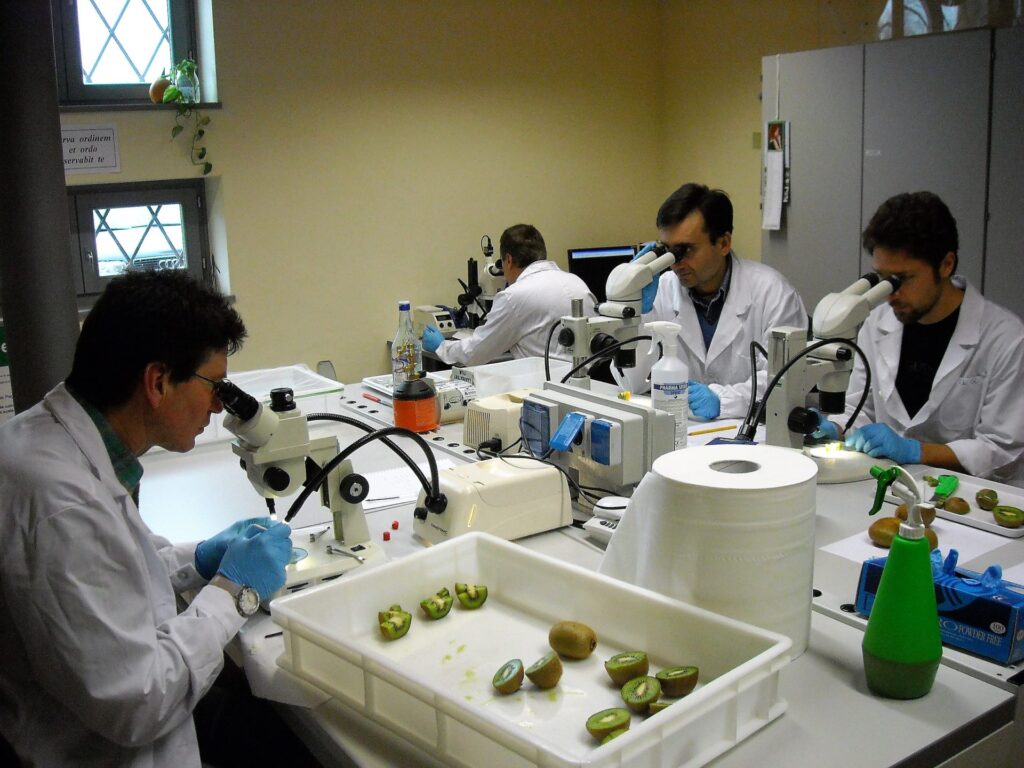Agricolture laboratory
The Agriculture of CAA Srl, for about twenty years, has carried out studies aimed at developing and spreading innovative techniques of defense with low environmental impact against diseases and insects harmful to agricultural crops (insects, mites, fungi, bacteria, viruses and phytoplasmas) and provides technical assistance for the application of biological control and integrated on farms. The activities are supervised by the Department of Agro-environmental Sciences and Technologies – University of Bologna. Types of tests carried out by Test Center: 254:
- effectiveness of phytosanitary products;
- verification of development of resistance to active ingredients in the context of insect populations;
- impact on quantitative and / or qualitative yield;
- phytotoxicity towards target plants or plant products;
- observations concerning undesirable side effects.

Fields of activity: Arboreal Crops, Herbaceous Crops, Ornamental Crops, Horticultural Crops, Weeding, Entomology, Nematology, Plant Pathology, Seed Production.
Reference Standards: The Test Center operates according to the principles contained in the Legislative Decree 17 March 1995 n. 194 (and subsequent amendments) on the implementation of Dir. 19/414 / CEE regarding the placing on the market of phytosanitary products.
The experimental efficacy tests are carried out according to the Principles of Good Experimental Practice (GEP) as foreseen by the European Organization for Plant Protection (EPPO) in the Guidelines for the Efficiency Evalutations of Plant Protection Prodocts vol. n. 1 (March 1999), vol. n. 2 (March 1997), vol. n. 3 (December 1997), vol. n. 4 (July 1998) and subsequent updates. In particular, for any test the guidelines No. 181 “Conduct and reporting of Efficiency Evaluations Trails” and No. 152 “Design and analysis Efficacy Evaluations Trails”. 152 “Design and analysis Efficacy Valutations Trails”.
For tests concerning the collateral effects of plant protection products on useful organisms or non-target organisms, including phytophagous insect predators, the Test Center refers to the standard methods of the International Organization of Biological control (IOBC / WPRS) “Guidelines for testing the effect of pesticides on benefits: description of test methods” (IOBC / WPRS, 1992) and “Guidelines to evaluate side-effect of plant protections products for no-target arthropods” (IOBC / WPRS, 2000).
